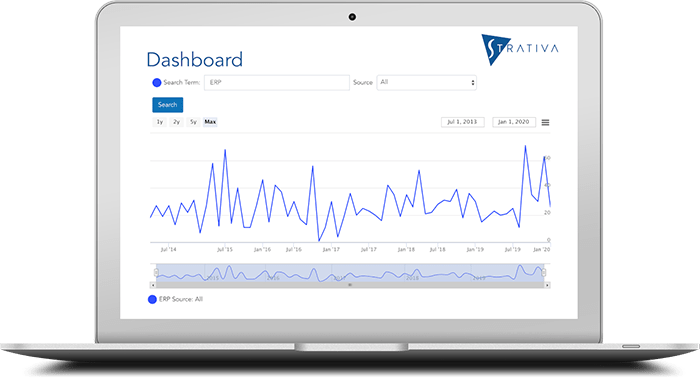
Oracle took another step in its strategy of growth by acquisition by announcing a bid for NetSuite, the leading player in the cloud ERP marketplace in terms of number of customers. At $9.3 billion, the deal is the second biggest in Oracle’s history, after PeopleSoft in 2005 for $10.3 billion.
The deal was long expected, for several reasons. Oracle Chairman Larry Ellison was NetSuite’s original investor, and Evan Goldberg, NetSuite’s founder, came out of Oracle. CEO Zach Nelson was an Oracle marketing executive. Oracle’s database is an integral part of NetSuite’s infrastructure.
Apart from helping Oracle in its race with Salesforce.com to get to $10 billion in cloud revenues, what are the benefits of the deal to Oracle? How does it help NetSuite, and what does it mean to the broader marketplace? Looking at the big picture, there are certainly benefits, but there are also several concerns.
Oracle Gains a Credible Two-Tier ERP Solution
The first benefit to Oracle is that Oracle now has a modern cloud ERP solution that it can offer to smaller companies. Until now, Oracle’s answer for ERP in the SMB market has been J.D. Edwards. JDE might have been a great solution for smaller companies back in the 1990s, but compared to modern cloud offerings, it carries a large footprint, even when deployed as a hosted solution. NetSuite is a faster-to-implement, easier-to-maintain system.
NetSuite’s characteristics not only make it attractive to smaller businesses, it also makes it attractive to smaller divisions of large companies, in a two-tier strategy.
Tom Dunlap, research director at our sister firm Computer Economics, writes in a Research Byte:
Cloud ERP systems are especially good in two-tier scenarios, as they are quick to set up and require no on-premises infrastructure. SAP has long had its own solution for the second tier, with its Business One offering. Now, with its acquisition of NetSuite, Oracle also has its own cloud ERP solution for the second tier. This is an immediate cross-sell opportunity for NetSuite, getting them into Oracle’s installed base of E-Business Suite customers, where they may be shopping for a plant level solution.
This is a plus for both Oracle and NetSuite: Oracle now has a solution for smaller divisions of its large customers, and NetSuite now has a ready introduction into Oracle’s large customer base.
But if NetSuite becomes Oracle’s go-to solution for smaller companies, what does that mean for the future of J.D. Edwards? JDE will no doubt remain a strong contender for certain industries, such as engineering and construction, food and beverage, and industrial manufacturing. But it is likely to take a second seat behind NetSuite for the SMB market generally.
Oracle Gains Solid Offerings for Retail and Wholesale Distribution
Although NetSuite sells into a variety of industries, it has had particular success with small and midsize retailers and wholesale distribution firms, especially those that need integrated e-commerce capabilities. NetSuite is one of the few vendors—cloud or traditional—that has a fully integrated solution for ERP, CRM, and e-commerce in one system. Oracle’s offerings to these markets is only satisfied through multiple products, such as Retek, a legacy retail industry package that Oracle acquired in 2005, and ATG, a well-regarded e-commerce platform that Oracle acquired in 2010. NetSuite’s newer integrated cloud solution is a much more attractive offering and it addresses a weakness in Oracle’s portfolio.
What does this mean for other products in Oracle’s portfolio, specifically Retek? Oracle’s history does not suggest it will sunset any product. But NetSuite is likely to be the preferred offering in the majority of new deals in the retail industry, especially among smaller companies, and among wholesale distributors that need the integrated commerce solution.
Will NetSuite Customers Buy Other Oracle Products?
While there are many benefits to the deal, there are also potential issues for Oracle. Oracle’s FAQ on the deal emphasizes the opportunity for Oracle to sell more products to NetSuite customers. But this benefit may be less than Oracle imagines:
- Many NetSuite customers are smaller companies, and not otherwise in Oracle’s target market. Larger NetSuite customers might be interested in some Oracle cloud products, such as HCM, but this would be a small subset of NetSuite’s 30,000 customers.
- Where NetSuite customers are looking for additional functionality, they are likely to first look to NetSuite partners that have built on NetSuite’s platform, SuiteCloud. The platform allows complementary products to interoperate with NetSuite’s core ERP/CRM system, utilizing the same entities, such as customers, orders, invoices, and items. Oracle’s products, at best, will only provide interfaces to NetSuite.
Many NetSuite customers probably considered Oracle when making their initial selection and decided against it. It is unlikely that most of them will reconsider that decision now that NetSuite is part of Oracle.
Will Oracle’s Sales Force Benefit NetSuite?
At first glance, it would appear that NetSuite will benefit from Oracle’s many feet on the street. As mentioned above, certainly this is the case in selling NetSuite as a second tier solution for Oracle’s large customers. But beyond that, there is some question as far as how much attention NetSuite can expect to gain from Oracle sales reps.
Oracle sales reps already have dozens of products to push. In recent software selection deals, we have seen Oracle pitch several disparate products to the prospect, where competitors are offering one or maybe two products. NetSuite just adds another product to the sales rep’s already overloaded bag. Because Wall Street is pressuring Oracle to increase its cloud revenue, it has been providing richer commissions on sales of cloud products. This may help NetSuite, but still, it will be fighting for attention with Oracle’s many other cloud offerings.
For example, NetSuite has a native CRM system, which should be adequate for most NetSuite prospects. But Oracle sales reps are encouraged to push as many products as they can into each deal. Will Oracle sales reps be satisfied to let the deal go with NetSuite CRM, or will they push Oracle Sales Cloud (formerly Fusion CRM) on top of NetSuite?
Another issue is that Oracle’s sales force has little experience selling into smaller businesses, which still comprise a large percentage of new NetSuite deals. Such deals will not be big enough to get the attention of Oracle reps. Therefore, although Oracle does not like to segment its sales force by product line, when it comes to NetSuite, it may need to make an exception to that principle. Moreover, to effectively serve the SMB market, it may need to retain and even extend NetSuite’s channel partner program.
NetSuite competitors are already talking about Oracle’s acquisition as an opportunity for them to gain ground, while Oracle clarifies its product roadmap and trains its sales force. FinancialForce was quick with a blog post. Other providers, such as Plex, Intacct, Rootstock, and Acumatica, have said little or nothing publicly but likely see the acquisition as an opportunity gain market share, especially in the SMB space, while Oracle organizes its sales efforts.
Will Oracle Commit to NetSuite’s Platform?
One of the strengths of NetSuite is its platform-as-a-service, known as SuiteCloud, which allows customers and partners to build new functionality on top of NetSuite. There is no doubt that Oracle will continue to support SuiteCloud, as it is an integral part of the solution already implemented by many NetSuite customers.
But Oracle already has its own PaaS offerings, based on common technologies such as Java. Oracle has criticized competing platforms, specifically Salesforce’s Force.com, which uses a proprietary language, because programs written for it cannot be ported to other clouds or to on-premises deployments. NetSuite’s platform is similar in this regard.
Looking at how Oracle has handled other acquisitions, it will need to support SuiteCloud in order to maintain NetSuite customer relationships. But it is unlikely that Oracle will want to build out SuiteCloud capabilities as far as NetSuite would have done so as a separate company.
Oracle Gains Executive Cloud DNA
Traditional vendors such as SAP and Oracle have often justified acquisition of cloud providers, in part, by pointing to the cloud experience it gains from the acquired personnel. With more than 15 years of cloud history, NetSuite is rich in cloud DNA, not only in its engineering teams, but also in its top executives, such as CTO Evan Goldberg and CEO Zach Nelson. Oracle should have big plans for those two if it wants to be seen as a preeminent cloud provider.
In some cases, notably in some of SAP’s acquisitions, acquired executives have chosen not to stay on after their employment contracts run out. With vested stock options, many of them can take the money and run. Hopefully that will not be the case with NetSuite personnel. Given the prior Oracle connections of many on the executive team, it would seem less likely.
Although the deal was long expected, the Oracle/NetSuite combination is a mixed bag in terms of benefits to each company. We expect it will take Oracle at least a year to sort out NetSuite’s place in its product roadmap and to transition its sales force. By then the picture should become much clearer.

